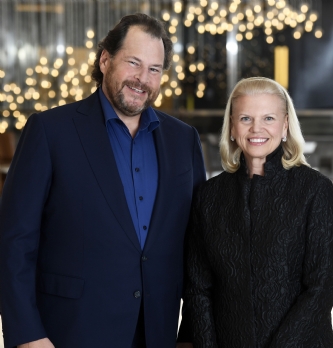How do you increase your odds of success in negotiating? How do you make sure you get what you need to succeed when it comes to getting what you want in every business negotiation? How can we all become great negotiators?
For many people, public speaking is their greatest fear. For entrepreneurs, it may be fear of making a bad deal. If you’re working with a wide range of clients and partners, your ability to negotiate a good deal is the foundation of growing a successful high growth business. So how do you get ready for your negotiation?
I have several ideas that help you set up for a successful negotiation outcome. Like many key business strengths, every person has their own way of negotiating. If you want to succeed in life and business you must learn and feel comfortable negotiating.
The most important concept about being a great negotiator is to be prepared. So many people fail in negotiations because they fail to prepare. So how do I prepare for a negotiation? It’s not as hard as it may seem. This week, I give you an overall preparation strategy.
Here’s the basic framework I use when I begin structuring a deal for my clients. Since I’m a creature of habit, I use it for my own negotiations, as well. These deals can go from several hundred thousand dollars on the low end to several hundred million on the high end.
The first skill all great negotiators share is they know the objective of their negotiation. They understand what a good agreement should include. They can define what they want out of the negotiation, in clearly measurable terms. They know what they expect from the person with whom they are negotiating. The clearer they are, the better they do in their negotiation.
The second skill all great negotiators share is they know their limits. What is their authority in this deal? Don’t assume that simply because a person is the CEO they have the authority to negotiate your deal. Great negotiators make sure they are dealing with the individuals they need to get final agreement. When you’re setting yourself up in a negotiation, should you be the final authority?
Over the years, I helped my clients succeed more in negotiation by letting final authority rest elsewhere. I have also closed large deals by challenging authority during the process. Good negotiators follow rules, great negotiators make their own. Great negotiators also understand human nature and leverage that understanding in their negotiation.
The third skill all great negotiators embrace is they know with whom they are dealing. When I started my career, I spent significant time understanding the person with whom I was dealing. I invested more time understanding my opponent’s background and how they might act in the negotiation. I also explore how their organization negotiates.
Most organizations have a negotiating style that is part of their culture and a great negotiator uncovers this before sitting down at the table. What can I find out about them, what are their strengths, and patterns during a negotiation? I spent time writing out their requirements so that I might understand where they were coming from on their requests. Are there things they don’t bend on? In developing these skills, you explore both tangible and intangible parts of their requirements.
In my earliest dealing with Berkshire Hathaway, I learned what they were not willing to concede on and it provided me significant growth opportunities within their organizational structures. Do you know what the other party refuses to bend on?
The fourth skill great negotiators understand is they only deal with people who can make the deal. Learning how to get the right person to the negotiating table is critical skill in dealing with larger organizations. If you want to succeed negotiating you must have the right person there making the deal. If the person has limited capabilities to accept the deal, you should make sure that you get the other person in on the conversation.
If that person is unavailable, I typically won’t sit down with their more junior person. This can be challenging. You must set up the negotiation in a way that ensures higher level involvement before the deal is done. Can you help the other person see it’s in their best interest to have the right person in the room?
The final skill great negotiators master is they know what is unacceptable. Entrepreneurs would be more successful dealmakers if they would more clearly define what an unacceptable outcome to the deal is before engaging in the negotiation. Great negotiators are very clear when a deal is unacceptable to them and their organizations.
The ultimate leverage exists with the negotiator who is willing to walk away from the deal. Understanding the short and long term benefits provide the negotiator with a better negotiating position than almost any other leverage.
Great Negotiators build on stronger businesses from the start. Do you want to learn more about the foundation of building a stronger business? You might enjoy What are the Five Most Important Questions?
The best part about being a great negotiator is the skills that are required can be learned. To develop them, you must constantly work on them and you continue to improve.
See you here next week.




